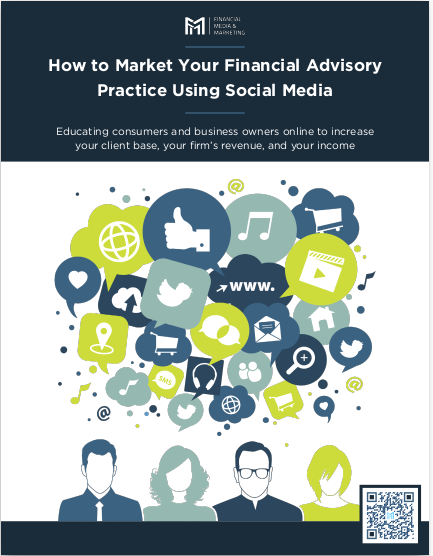Key Takeaways
-
The digital landscape is evolving, and financial advisors must adapt their web design strategies to remain competitive in 2025.
-
A sleek, client-focused website with personalization, accessibility, and interactive features can significantly improve lead generation and conversion rates.
Why Your Website Matters More Than Ever in 2025
If your website isn’t keeping up with modern trends, you’re losing potential clients to competitors who are embracing innovation. In 2025, financial advisors need to go beyond basic design and create digital experiences that foster trust, engagement, and seamless interactions. A well-crafted website isn’t just a digital business card—it’s your 24/7 sales tool that continuously attracts and nurtures leads.
User Experience (UX) Is the Foundation of Your Success
Prioritizing Speed and Performance
With attention spans shrinking, a slow-loading site is a dealbreaker. A website that takes more than three seconds to load can drive away potential clients. Optimizing your website’s performance by leveraging content delivery networks (CDNs), efficient coding, and image compression should be a priority. Additionally, ensuring that your website follows best practices for caching and minimizing HTTP requests will further boost speed.
Mobile-First Design: No Longer Optional
More than 70% of website traffic in 2025 comes from mobile devices. If your website isn’t mobile-friendly, you risk alienating a vast portion of potential leads. A responsive design ensures that users can access your site seamlessly, whether they’re on a smartphone, tablet, or desktop. Mobile-first design also means intuitive touch interactions, easy-to-read fonts, and lightning-fast mobile load times.
Seamless Navigation and Intuitive Layouts
A user-friendly site isn’t just about speed—it’s also about ease of navigation. Prospects should be able to find essential information quickly. Consider simplifying menu structures, using sticky navigation bars, and implementing clear calls to action (CTAs) that direct visitors to book appointments or download valuable resources.
Personalization: Making Your Website Work for Each Visitor
AI-Driven Customization
Artificial intelligence (AI) is revolutionizing web design. Financial advisors can use AI-driven tools to personalize content based on visitor behavior, such as offering tailored blog recommendations or interactive retirement calculators that adapt to user input. AI can also track user preferences and dynamically display content that aligns with their interests, improving engagement and conversion rates.
Client Portals for a Tailored Experience
Creating a secure client portal where prospects and existing clients can track financial insights, book consultations, or access exclusive content enhances user engagement. A personalized dashboard fosters trust and keeps clients returning to your site. These portals can also integrate with financial planning tools to offer real-time updates on investments and savings.
Accessibility: Designing for Every Potential Client
Compliance with WCAG Standards
An accessible website ensures that you don’t miss out on potential leads due to usability issues. Compliance with Web Content Accessibility Guidelines (WCAG) means designing your site for individuals with visual, auditory, or motor impairments. Features like text-to-speech compatibility, color contrast options, and keyboard navigation help broaden your audience. In 2025, accessibility isn’t just a recommendation—it’s a necessity.
Simplified Navigation for All Users
Complex navigation can frustrate users and drive them away. Financial advisors should aim for a clear, concise menu structure that guides visitors effortlessly to key pages, such as service offerings, contact forms, and educational resources. Consider adding breadcrumbs, anchor links, and well-placed buttons to enhance navigation.
Interactive Features That Keep Visitors Engaged
Chatbots and AI-Powered Assistants
AI chatbots can answer client queries in real time, offering immediate engagement and reducing bounce rates. In 2025, chatbots are smarter than ever, capable of providing nuanced financial advice and guiding users toward booking consultations. These tools can automate lead qualification, ensuring that potential clients receive the right information based on their needs.
Interactive Financial Tools
Prospective clients love tools that provide instant value. Features like risk assessment quizzes, investment calculators, and financial goal planners increase user engagement while positioning you as a knowledgeable resource. Interactive elements also encourage visitors to spend more time on your site, increasing the likelihood of conversions.
Visual Trends That Enhance Credibility and Engagement
Minimalist Yet Impactful Design
Overcrowded websites with excessive text and images can overwhelm visitors. A minimalist approach—utilizing white space effectively, clear typography, and high-quality visuals—creates a sense of professionalism and credibility. In 2025, expect more sites to embrace high-contrast color schemes and immersive scrolling experiences.
Video Content for Stronger Connections
Video continues to dominate digital engagement in 2025. Including a short, well-produced introductory video explaining your services and financial philosophy can establish a personal connection with potential clients before they even contact you. Live Q&A sessions and educational video content can also boost trust and engagement.
Search Engine Optimization (SEO) Strategies for Maximum Visibility
Local SEO for Financial Advisors
Many financial advisors operate within specific regions. Optimizing for local SEO—using location-based keywords, listing your firm on Google My Business, and collecting client reviews—boosts your visibility in search results for prospects looking for financial expertise in their area. Local content marketing, such as blog posts about regional economic trends, can further enhance your local search rankings.
Voice Search Optimization
With the increasing use of smart assistants, optimizing your website for voice search is crucial. Ensure that your site answers common financial questions concisely to increase the chances of being featured in voice search results. Focus on conversational keywords and frequently asked questions to cater to voice search users.
Security and Compliance: Protecting Client Data
Implementing Strong Cybersecurity Measures
Financial advisors handle sensitive client data, making security a top priority. Multi-factor authentication (MFA), SSL certificates, and end-to-end encryption are non-negotiable features in 2025. Regular security audits and threat monitoring can further enhance protection.
Staying Compliant with Industry Regulations
Web compliance isn’t just about accessibility—it also includes financial industry regulations. Ensuring your website meets the latest financial compliance standards protects both your firm and your clients from legal risks. Clear privacy policies and transparent data handling practices build client trust.
Content Marketing and Thought Leadership
Blogging for Authority
Consistently publishing valuable financial content boosts SEO and positions you as an expert in your field. Writing about retirement planning, investment strategies, and financial security ensures that your website becomes a go-to resource for clients. Regular updates and guest contributions from industry experts can further establish authority.
Lead Magnets: Capturing Emails and Converting Visitors
Offering downloadable e-books, exclusive reports, or webinar invitations in exchange for an email address helps build your prospect list. These lead magnets should be highly relevant to the financial concerns of your target audience. Segmenting your email list based on user interests ensures more effective communication.
Social Proof and Client Trust Signals
Showcasing Testimonials and Case Studies
Visitors want to know they can trust you with their finances. Featuring client testimonials, success stories, and even video endorsements can boost credibility and encourage conversions. Showcasing detailed client results and satisfaction metrics builds even greater trust.
Trust Badges and Certifications
Displaying industry certifications, media features, and association memberships on your website reinforces legitimacy. Trust signals reassure visitors that they’re dealing with a professional financial advisor. Highlighting partnerships with respected financial institutions can further boost credibility.
The Future of Web Design for Financial Advisors
Web design isn’t just about aesthetics—it’s about creating a digital experience that attracts, engages, and converts visitors into long-term clients. By implementing the latest trends in personalization, accessibility, interactivity, and security, financial advisors can ensure their websites remain powerful lead-generation tools in 2025 and beyond.










